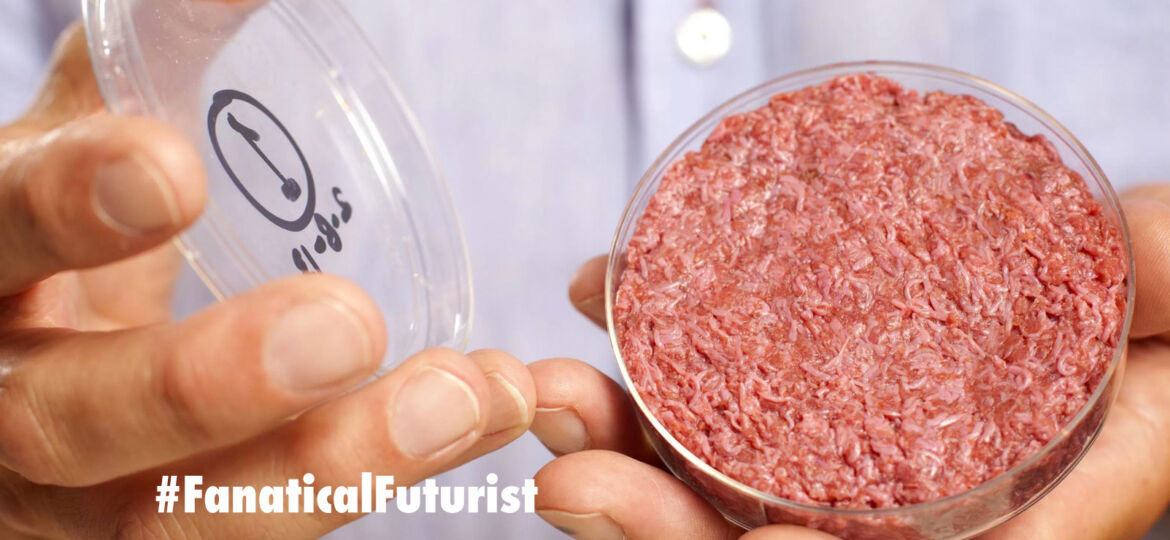
WHY THIS MATTERS IN BRIEF
Food production is undergoing a revolution, and technology is helping us move away from what many experts and governments are increasingly seeing as outdated farming techniques to help us feed Earth’s growing population.
Following on from a recent announcement that US start up Plenty are going to be building more than 300 vertical farms across China the Chinese government has just become the first country in the world to sign a $300m deal to buy lab grown meat from three companies in Israel in a deal that could open the flood gates for similar companies who are pushing new ways to produce food in order to sustain Earth’s growing population.
Lab meat, which is also known as clean meat, is meat that is grown in bioreactors in labs using only animal cells rather than having to obtain the meat by slaughtering actual animals, and recently, after the FDA approved clean meat for sale in the USA many forward thinkers are increasingly thinking that meat grown in this way could help us stave off a global food shortage as the global population gets ready to grow by another 2 billion people by the year 2050.
Bruce Friedrich, head of the Good Food Institute (GFI), an organisation which promotes meat alternatives, hailed the deal as a “colossal market opportunity,” and he believes the deal “could put [clean] meat onto the radar of Chinese officials who have the capacity to steer billions of dollars into this technology.”
Although the use of animal cells means it is not entirely slaughter free, scientists, from companies such as Memphis Meats, who’ve attracted millions of dollars worth of funding from some of the world’s richest billionaries such as Jeff Bezos, the CEO of Amazon, and Eric Schmidt of Google fame, and who have already used bioreactors to grow beef, chicken, duck and turkey meat, are currently working on developing a totally synthetic substitute.
For many environmental and animal rights groups, clean meat is seen as a positive move away from the slaughter of billions of animals, as well as being a significantly greener alternative because it uses next to no land to produce, just a lab, uses no chemicals, fertilisers or steroids, and unlike the billions of cows around the world, who belch and fart all the time, produces no harmful greenhouse gases. Putting this into perspective in 2016 cattle accounted for over 15 percent of all greenhouse gases making them by far the most polluting animals on the planet.
China is not generally regarded as a world leader in environmental issues, so its deal with three Israeli companies, namely SuperMeat, Future Meat Technologies, and Meat the Future, has been welcomed by some groups as a sign that the country is committed to reducing its greenhouse gas emissions, but meanwhile others suspect that the deal has more to do with trying to find new ways to feed China’s burgeoning middle class who, after decades of living off of carbs and rice, now have a hunger for protein rich meat, and that means the country has to find new ways to secure access to huge volumes of quality, cheap meat.
China currently imports around £10bn worth of meat annually to help feed its population of more than 1.4 billion people.
“Through this kind of lifestyle change, it is expected that the livestock industry will transform and carbon emissions will be reduced,” said Li Junfeng, director general of China’s National Center on Climate Change Strategy and International Cooperation.

















Great development indeed!
qq: can you add attribution of the petri dish image to Mosa Meat? (by Mark Post, the creator of the first clean meat hamburger in 2013)
Hi Tim, will do and it’s an exciting space to watch and take part in at the moment!
[…] in sight, from companies including Aleph Farms, who recently produced fillet steak in this way and sold $300m of clean meat to China, Memphis Meats, Mosa Meat, Just, and Finless […]